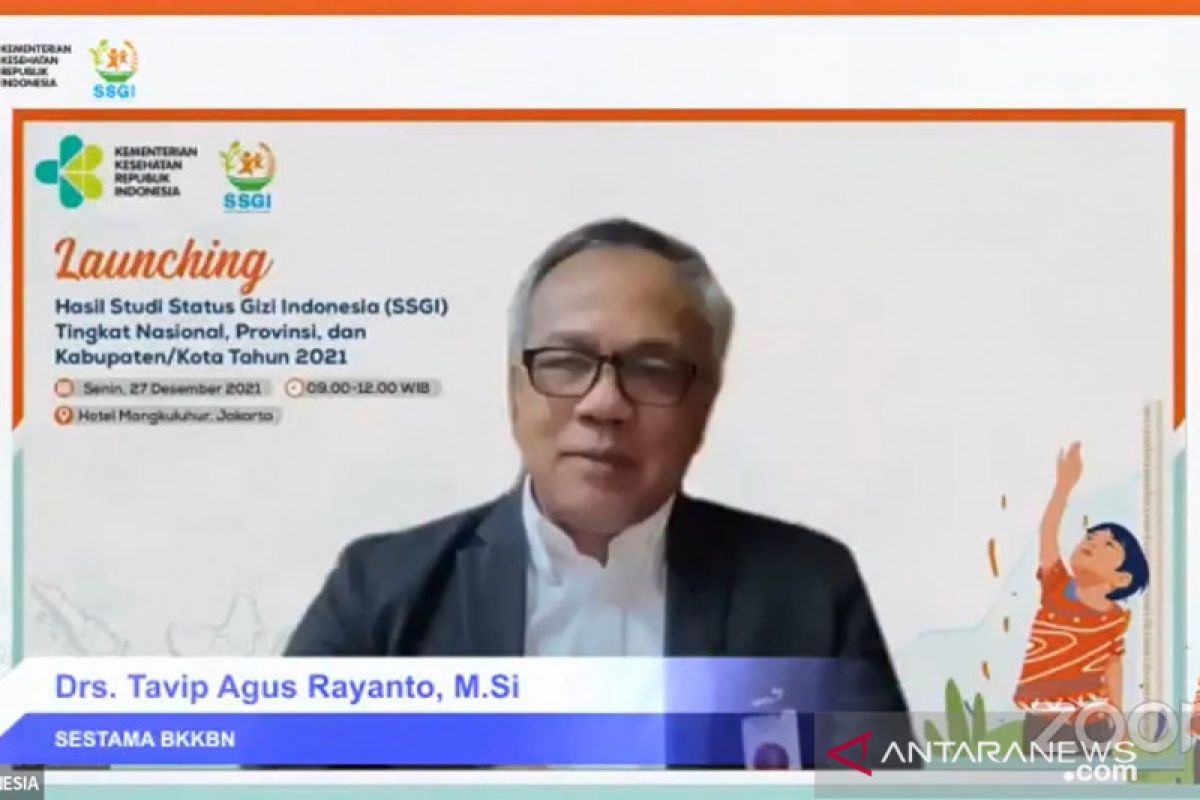Regarding the results of the 2021 Study on Indonesia's Nutritional Status (SSGI) calculation, we are grateful that the prevalence rate of stunting in 2021 had shown a decline as compared to 24.4 percent in 2019Jakarta (ANTARA) - The National Population and Family Planning Agency (BKKBN) stated that the prevalence rate of stunting in children had declined to 24.4 percent by the end of 2021.
"Regarding the results of the 2021 Study on Indonesia's Nutritional Status (SSGI) calculation, we are grateful that the prevalence rate of stunting in 2021 had shown a decline as compared to 24.4 percent in 2019," BKKBN secretary Tavip Agus Rayanto stated here, Monday.
Rayanto noted that this figure had decreased as compared to Indonesia's stunting rate of 27.67 percent in 2019.
A decline in the stunting prevalence rates was achieved through various collaborations between ministries and institutions, good practices with neighboring countries, and the help from Indonesian citizens.
"The SSGI result reminds us that the rate of stunting reduction demanded by the government is 2.6 percent per year in order to achieve the 2024 target," he stated.
However, Rayanto emphasized that this figure is still far from the government-set target for stunting prevalence rate of 14 percent in 2024, as mandated in Presidential Regulation Number 72 of 2021 on the acceleration of stunting reduction.
In addition, families should be edified about family planning, the importance of fulfilling nutritional intake, and improving parenting skills. The government should also provide access to health services to lower cases of stunting in the country.
Rayanto has invited all parties to ensure that all programs, designed for teenagers, prospective brides, pregnant and lactating mothers, and toddlers, can run optimally.
"I would like to invite us all to formulate and implement data- and fact-based activity plans that must lead to the real convergence of target groups' families," he remarked.
Meanwhile, Deputy Minister of Health Dante Saksono Harbuwono noted that the nutritional status in Indonesia continues to improve with each passing year.
Harbuwono stated that the wasting rate in children fell to 7.1 percent after earlier being recorded at 7.4 percent in 2019.
In the case of overweight children, the figure also declined to 3.8 percent in 2021, from 4.5 percent in 2019.
Meanwhile, the percentage of underweight children increased, from 16.3 percent in 2019 to 17 percent in 2021.
Three regions with the lowest stunting prevalence rates were Yogyakarta, at 17.3 percent; Jakarta, 16.8 percent; and Bali, 10.9 percent.
“I would like to thank the three provinces for their efforts in reducing the prevalence rate of stunting below the national average of 24.4 percent," he added.
Translator: Hreeloita D S, Resinta S
Editor: Fardah Assegaf
Copyright © ANTARA 2021












